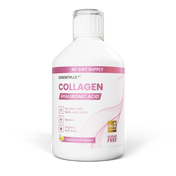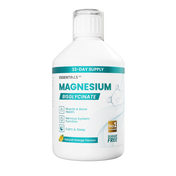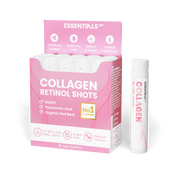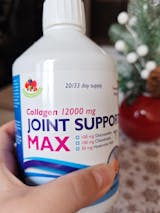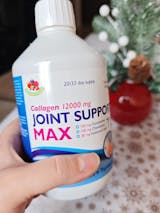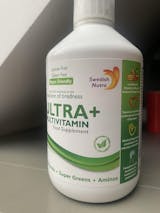Collagen for Joint Health: A Deep Dive into Its Benefits and How to Supplement
As we age, our bodies naturally produce less collagen, a protein that plays a crucial role in maintaining healthy joints. This decline can lead to joint pain, stiffness, and decreased mobility. Fortunately, collagen supplements have emerged as a promising solution for supporting joint health.
What is Collagen and Why is it Important for Joints?
Collagen is the most abundant protein in our bodies, forming the framework for our skin, bones, cartilage, tendons, and ligaments. It acts like a glue, holding these tissues together and providing strength and flexibility.
Within our joints, collagen is a key component of cartilage, the smooth, cushioning tissue that protects the ends of bones from friction and wear. Collagen helps maintain the integrity of cartilage, allowing for smooth joint movement and preventing damage.
How Collagen Supplements Benefit Joint Health
Collagen supplements can offer several benefits for joint health, including:
- Reduced Joint Pain and Stiffness: By boosting collagen levels, supplements can help repair and rebuild damaged cartilage, leading to decreased pain and stiffness.
- Improved Joint Mobility: Enhanced collagen production can increase the flexibility and range of motion in joints, allowing for easier movement and activities.
- Protection Against Joint Deterioration: Collagen supplements can help protect cartilage from further damage, slowing down the progression of osteoarthritis and other joint conditions.
- Increased Joint Lubrication: Collagen contributes to the production of synovial fluid, a lubricating fluid that cushions and protects joints.
Types of Collagen Supplements
There are several types of collagen supplements available, each with its unique properties. Some popular types include:
- Type I Collagen: The most abundant type of collagen in our bodies, found in skin, bones, and tendons. It is known for its strength and structural support.
- Type II Collagen: Primarily found in cartilage, Type II collagen is specifically beneficial for joint health.
- Type III Collagen: Found in skin, muscles, and blood vessels, Type III collagen provides elasticity and support.
Choosing the Right Collagen Supplement
When choosing a collagen supplement, consider the following factors:
- Source: Opt for collagen derived from high-quality, sustainable sources, such as grass-fed beef or pasture-raised chicken.
- Type: Choose a supplement that contains Type II collagen for optimal joint health benefits.
- Dosage: The recommended dosage varies depending on the individual and the specific supplement. Start with a lower dose and gradually increase as needed.
- Form: Collagen supplements are available in various forms, including powders, capsules, and gummies.
Other Tips for Joint Health
In addition to collagen supplementation, several lifestyle modifications can promote joint health:
- Maintain a Healthy Weight: Excess weight puts extra stress on joints, increasing the risk of wear and tear.
- Regular Exercise: Moderate exercise strengthens muscles and supports joint stability. Avoid high-impact activities that can put excessive strain on joints.
- Eat a Balanced Diet: Include plenty of fruits, vegetables, and lean protein in your diet to provide essential nutrients for joint health.
- Get Enough Sleep: Proper sleep allows the body to repair and rebuild tissues, including cartilage.
- Manage Stress: Chronic stress can contribute to inflammation and joint pain. Find healthy ways to manage stress, such as yoga, meditation, or spending time in nature.
Conclusion
Collagen supplements can play a vital role in supporting joint health, particularly as we age. By boosting collagen levels, these supplements can help reduce pain, improve mobility, and protect joints from further deterioration. However, it's essential to choose a high-quality supplement, follow the recommended dosage, and adopt a healthy lifestyle to maximize the benefits. Consult with a healthcare professional before starting any new supplement regimen.
Remember, collagen supplements should be considered a part of a holistic approach to joint health. Combining supplementation with a healthy diet, regular exercise, and stress management can lead to optimal joint function and well-being.




